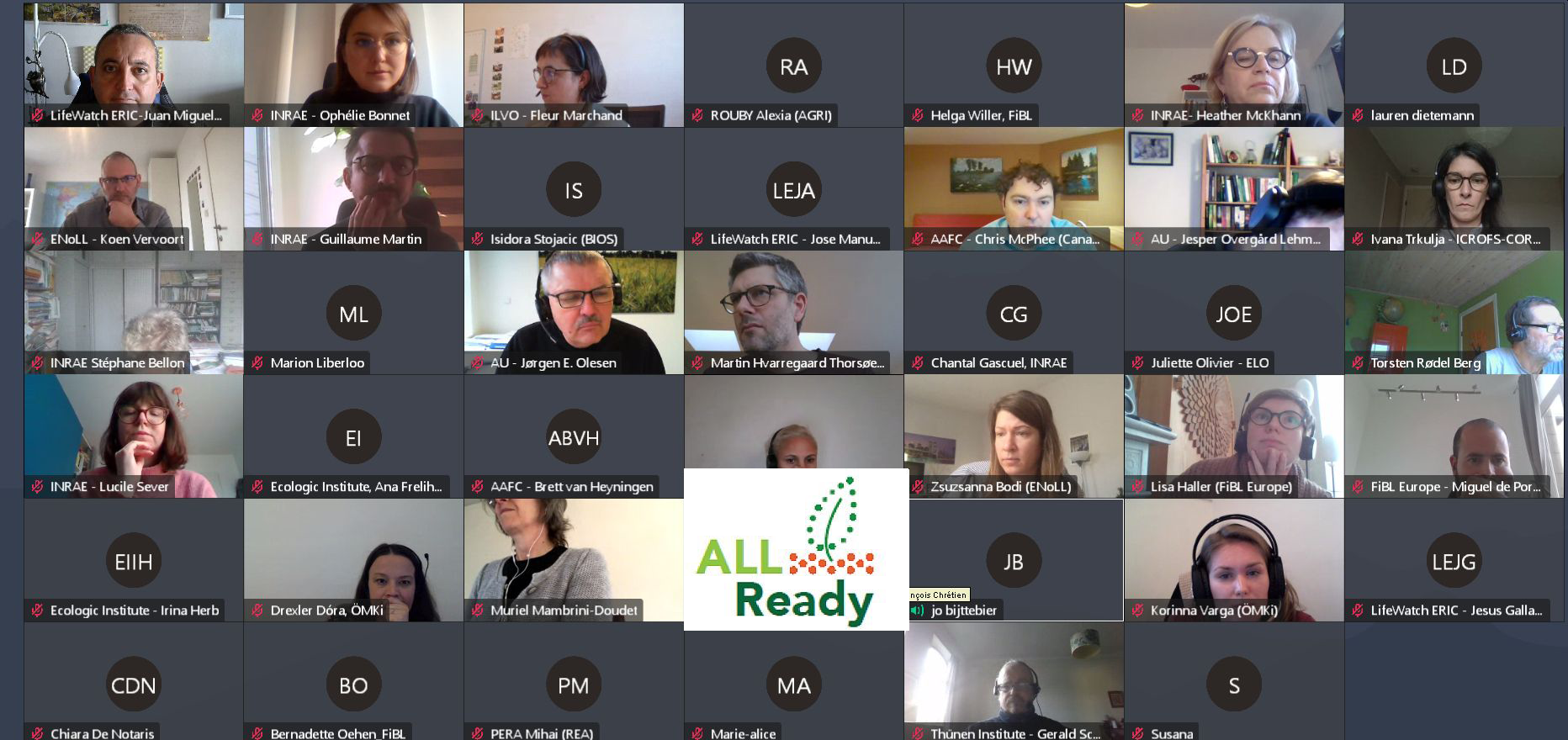
The European AgroEcology Living Lab and Research Infrastructure Network CSA launched its preparatory phase online on 8–9 December, bringing together agricultural, land-use, ecological and research institutes, to prepare a framework that will enable the transition to an expansion of agroecology in Europe.
Under the name of ALL-Ready, the project will address the multiple challenges that agricultural systems are facing today, including climate change, biodiversity loss, dwindling resources, and degradation of soil and water quality. Open Innovation Arrangements (OIAs), in particular Living Labs (LL), and Research infrastructures (RIs) are capable of showing the way to strengthen the sustainability and resilience of farming systems.
Chief Technology Officer Juan Miguel González-Aranda, is bringing to the table LifeWatch ERIC’s expertise in data management platforms, virtual research environments, and intellectual property rights technology – including LifeBlock, which guarantees the integrity and provenance of data – as a model of the e-Services vital to European AgroEcology Communities of Practice.
ALL-Ready will follow a highly participatory and inclusive approach, using a living lab methodology based on experimentation in real life situations. Underpinned by principles of strong stakeholder engagement, the project has three phases:
- this preparatory phase to define the vision, scope and mission for the Network, which will then enable the mapping of current and emerging LLs, RIs and OIAs across Europe and their characteristics, highlighting best practice
- the preparation of different prerequisites/ activities for the Network regarding sustainability, funding, governance, capacity building, data and knowledge management, that will be tested in a small-scale pilot networks and refined, and
- communication of the outcomes of the work throughout Europe.
H2020 ALL-Ready CSA is supporting the co-design and establishment of the coming next EU DG-AGRI Programme on AgroEcology to be published by T4 2020-T1 2023, and granted by end 2023-early 2024.
The ALL-Ready partners are:
- Institut National de Recherche pour L’Agriculture, L’Alimentation et L’Environnement (INRAE)
- Aarhus Universitet (AU)
- Ökológiai Mezógazdasági Kutatóintézet Közhasznú Nonprofit Kft (ÖMKi)
- Johann Heinrich Von Thúnen-Institut, Bundesforschungsinstitut für Ländliche Räume, Wald und Fischerei (TI)
- European Network of Living Labs IVZW (ENoLL)
- Biosense Institute – Research and Development Institute for Information Technology in Biosystems (BIOS)
- Fibl Europe – Forschungsinstitutfur Biologischen Landbau in Europa (FIBL)
- Ecologic Institut Gemeinnützige (GmbH Ecologic)
- European Landowners Organization (ELO)
- Agriculture and Agri-Food Canada (AAFC)
- Eigen Vermogen van het Institut voor Landbouw -En Visserijonderzoek (EV ILVO)
- The e-Science European Infrastructure for Biodiversity and Ecosystem Research (LifeWatch ERIC)
- The University of Sheffield (UOS).